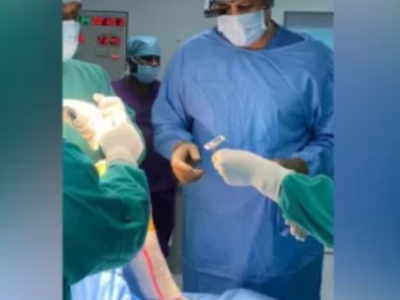A serious bone infection, Osteomyelitis causes pain, swelling, and in severe cases, lead to bone tissue damage. This condition requires prompt medical attention to prevent complications. In this comprehensive guide, we’ll delve into the various aspects of osteomyelitis, from its causes and symptoms to treatment options and prevention methods.
Osteomyelitis Causes
Osteomyelitis is an infection that affects the bone and the surrounding tissues. It can occur in various bones in the body and is caused by bacteria or fungi entering the bone. This infection can lead to pain, inflammation, and even bone death if not treated promptly.
Osteomyelitis Causes
Osteomyelitis typically occurs when bacteria or fungi enter the body through an open wound, surgical procedure, or bloodstream. Common bacteria responsible for osteomyelitis include Staphylococcus aureus, which can spread to the bone from other parts of the body.
Signs and Symptoms
The symptoms of osteomyelitis can vary, but they often include persistent pain, tenderness, and swelling around the affected area. Fever and chills may also be present, indicating an active infection.
Diagnosis and Medical Evaluation
To diagnose osteomyelitis, doctors may conduct a physical examination, review the patient’s medical history, and order imaging tests such as X-rays, MRI, or CT scans. Blood tests can help identify the presence of infection.
Treatment Approaches
The treatment of osteomyelitis involves a combination of antibiotics and surgical interventions. Antibiotics are administered to eliminate the infection, while surgery may be required to drain pus or remove infected bone tissue.
Surgical Interventions
In severe cases, surgical procedures may be necessary to remove infected bone fragments and promote healing. This may involve debridement, where the infected tissue is removed, or in more advanced cases, bone grafting to repair damaged areas.
Antibiotics and Medications
Antibiotics are a cornerstone of osteomyelitis treatment. The type of antibiotic prescribed will depend on the specific bacteria causing the infection. These medications help eradicate the bacteria and prevent further spread.
Recovery and Rehabilitation
Recovery from osteomyelitis can take time, and proper rehabilitation is essential. Physical therapy may be recommended to restore strength and functionality to the affected area.
Preventing Osteomyelitis
Preventing osteomyelitis involves practicing good hygiene, especially if you have open wounds or are at risk due to a medical condition. Proper wound care, managing chronic diseases, and avoiding high-risk activities can help reduce the likelihood of infection.
Maintaining Bone Health
Ensuring strong bone health can also play a role in preventing osteomyelitis. A diet rich in calcium and vitamin D, regular exercise, and avoiding smoking and excessive alcohol consumption can contribute to bone strength.
FAQs About Osteomyelitis
1. Can osteomyelitis be cured with antibiotics alone?
Antibiotics are a crucial part of treatment, but severe cases may require surgical intervention for complete recovery.
2. Is osteomyelitis contagious?
No, osteomyelitis is not contagious. It’s caused by bacteria or fungi that typically enter the body through open wounds or the bloodstream.
3. Can osteomyelitis affect children?
Yes, osteomyelitis can affect people of all ages, including children.
4. Are there any long-term complications of osteomyelitis?
In some cases, chronic osteomyelitis may lead to bone deformities or limited mobility in the affected area.
5. How can I reduce my risk of developing osteomyelitis?
Practicing good hygiene, managing chronic conditions, and avoiding behaviors that may lead to infections are essential for preventing osteomyelitis.
Conclusion
Osteomyelitis is a complex and potentially serious bone infection that requires timely diagnosis and appropriate treatment. By understanding osteomyelitis causes, symptoms, treatment options, and prevention methods outlined in this article, you can take proactive steps to safeguard your bone health and overall well-being. If you suspect you may have osteomyelitis, consult Dr. Aditya Kapoor for a thorough evaluation and personalized treatment plan.

